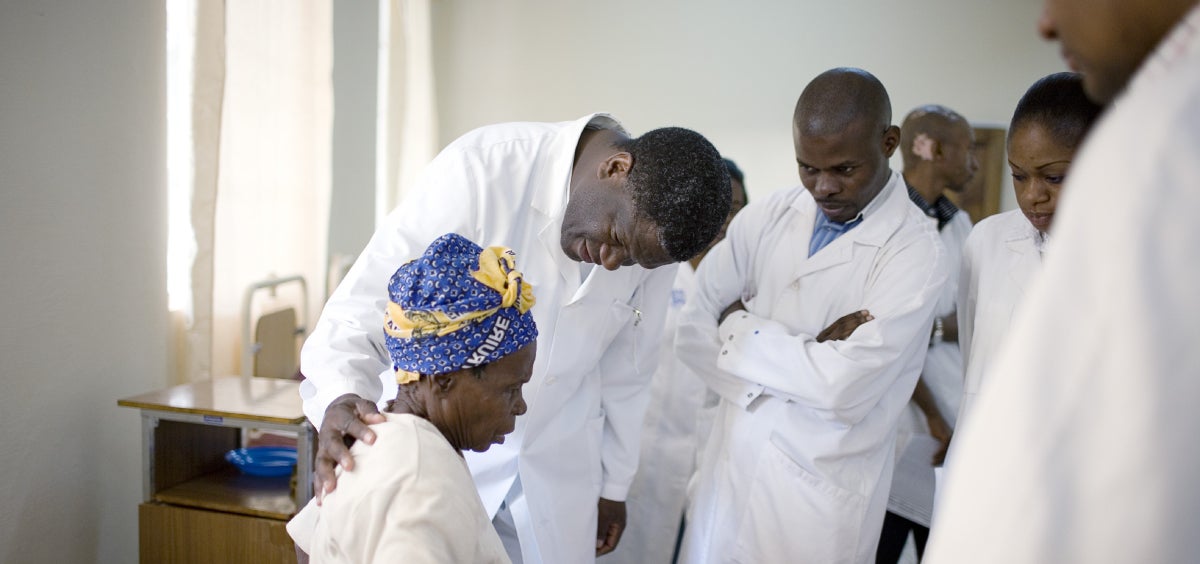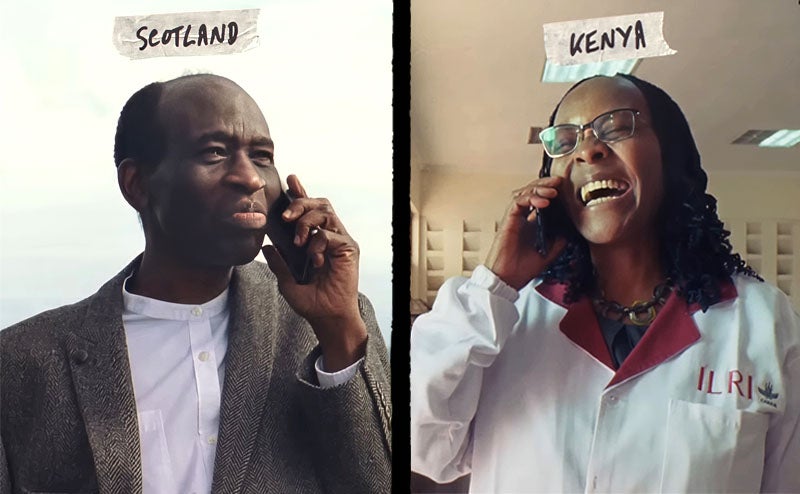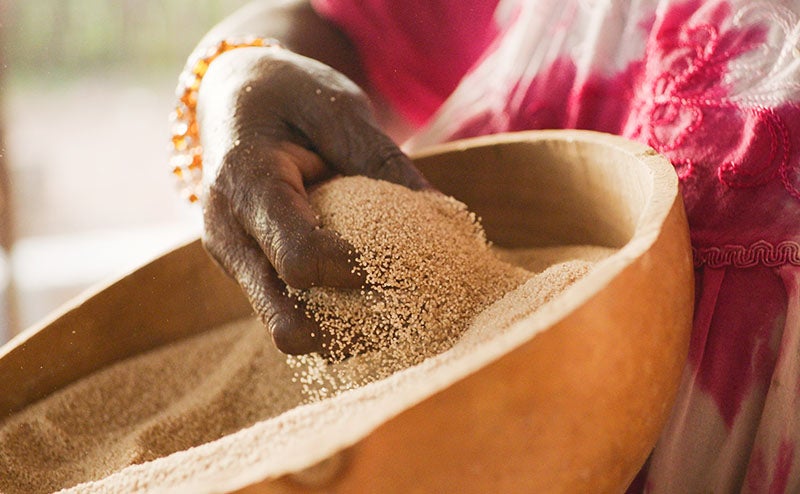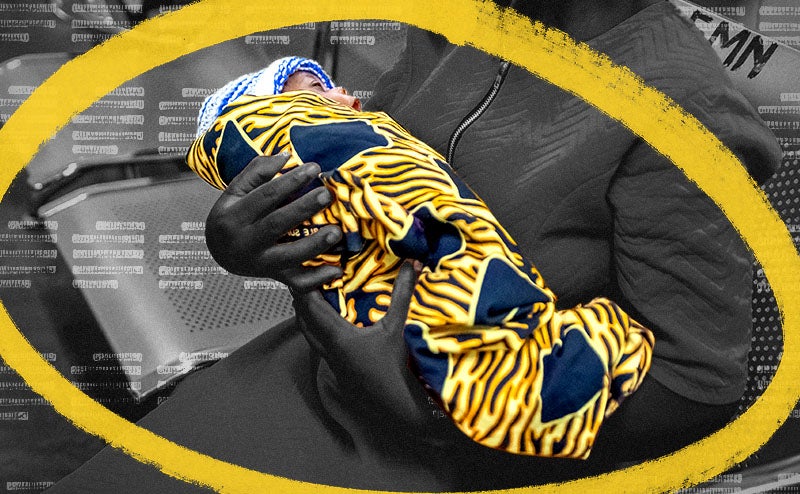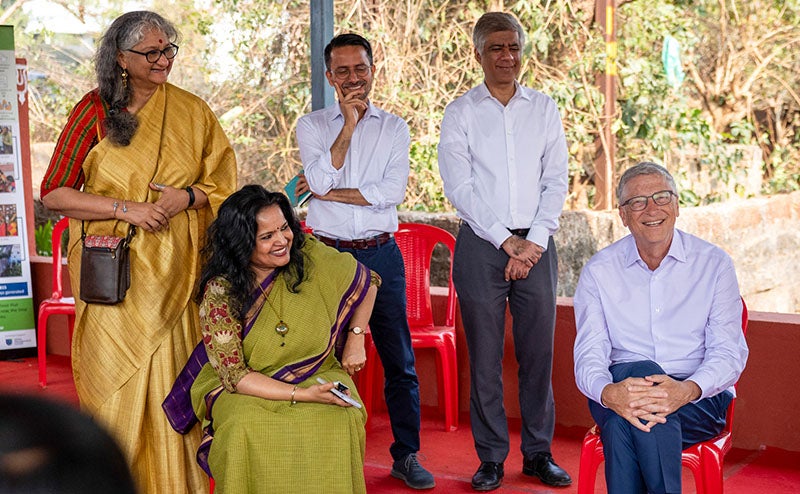We decided to dive deep on the question that underlies our whole series and ask ourselves, “Can people really change?”
Dr. Denis Mukwege is founder of Panzi Hospital in the Democratic Republic of Congo, where he and his staff have cared for more than 50,000 survivors of sexual violence. They include women who have been raped in front of their families and girls brutally assaulted by combatants during the country’s two decades of civil war. Some of his patients are infants—less than one-year-old—who have been raped.
For someone who has witnessed so much cruelty and suffering, Dr. Mukwege could be forgiven for not having a very hopeful view of our world. But when I met him in New York last year, I was struck not only by his warmth and gentleness, but also his incredible optimism.
“What is keeping me going is really the strength of women. I discovered how women are strong, how women can rebuild, and give hope for our humanity,” he told me. “They have taught me a lot about how we can make our world better, by not only thinking about yourself but to think about other people.”
As a boy growing up in eastern Zaire (now the Democratic Republic of Congo), Dr. Mukwege was drawn to a life of service to others. He would accompany his father, a pastor, as he went from home to home to pray for the sick in their community. While he admired his father’s faith, he wanted to use the power of medicine to help heal them. At age 8, he decided he would become a doctor.
He went to medical school in France where he specialized in pediatrics. As he learned about how many women were dying giving childbirth, especially in his own country, he switched to obstetrics.
When he returned to Africa, he opened a center to provide maternity care in the city of Bukavu in eastern Congo. It was the first clinic of its kind in the entire region. But the first patient he saw didn’t come because she was pregnant. She had been raped and shot. In the months that followed, dozens more rape survivors showed up at his hospital. By year’s end, Dr. Mukwege had treated hundreds of survivors and their numbers kept growing. He soon learned that rape was being used by soldiers to intimidate and displace entire communities, causing the women and their families to flee.
“When rape is used as a weapon of war, the impact is not only to destroy women physically, it’s also to destroy their minds . . . to destroy their humanity,” he said.
At first, Dr. Mukwege focused on treating the women’s physical wounds. But he soon realized that it was not enough. Most of the women had been so traumatized that they could not go back home and restart their lives. So, he designed a more comprehensive approach to care that goes beyond physical healing and focuses on psychological support and socioeconomic assistance. He also started a legal program to pursue justice for the survivors of sexual violence.
Looking back over the thousands of patients he’s seen over the years, Dr. Mukwege says one case stands out for him. It’s the first patient he treated—more than two decades ago. She underwent six surgeries and, at first, was unable to walk. She thought her life was ruined, he recalled.
But she was inspired to help others who had experienced what she had. She enrolled in school and dedicated her life to taking care of other victims of sexual violence. Today, she is one of the longest serving employees at Panzi Hospital, where she helps patients put the pieces of their lives back together. Thanks to her efforts and the work by the rest of Dr. Mukwege’s staff at Panzi Hospital, thousands of women have been able to rebuild their lives—some even going on to become nurses, doctors, and lawyers.
“The goal is to transform their pain into power,” Dr. Mukwege said. “We can change hate by love.”
